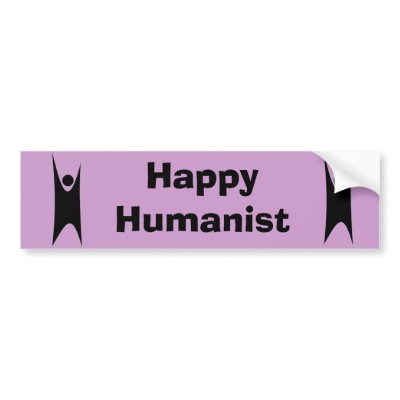In Mere Christianity C.S Lewis argues for an account of what you need to believe in order to be a Christian. Of course there is a huge variety of beliefs between Christian denominations (possibly up to 50,000!) and within those denominations. What Lewis attempts to do is pinpoint the beliefs most of these Christians have in common, thus Mere Christianity.
I would like to shortly speculate what Mere Humanism might look like. After all so called, humanists differ in many ways (some are agnostic, others naturalist, they have different ethical beliefs, some are vicious in there opposition to religion others couldn't care less and so on). For example here is a definition of Humanism from my magazine the Humanist (which is produced by the American Humanist Association):
"Humanism is a rational philosophy informed by science, inspired by art, and motivated by compassion. Affirming the dignity of each human being, it supports liberty and opportunity consonant with social and planetary responsibility. Free of theism and other supernatural beliefs, humanism thus derives the goals of life from human need and interest rather than from theological or ideological abstractions, and asserts that humanity must take responsibility for its own destiny."
and according to Wikipedia:
"Humanism is an approach in study, philosophy, world view, or practice that focuses on human values and concerns, attaching prime importance to human rather than divine or supernatural matters."
From the American Humanist Association website:
"Humanism is a progressive philosophy of life
that, without theism and other supernatural beliefs, affirms our
ability and responsibility to lead ethical lives of personal fulfillment
that aspire to the greater good of humanity."
My first qualm with these definitions is that they are speciesist, they only mention the value of humans rather than that nonhuman animals. So much the worse for humanism if it entails speciesism. Thankfully I don't think it does, at any rate Mere Humanism shall not!
Religious Skepticism
Humanism we are told is devoid of "theism and other supernatural beliefs"? But should the Mere Humanist reject all supernatural beliefs or remain skeptical? Should they even reject all religions beliefs? I don't think they should reject such beliefs nor should Mere Humanism entail that. For example it seems as though agnostics (even though they don't positively deny the existence of a theistic God) can be humanists! Moreover at the bottom of religious claims one sees, as J. L. Schellenberg has argued, what he calls Ultimism. Ultimism is the belief in a metaphysically and axiologically ultimate reality. So at the root of religious claims there is an ultimate reality and part of that reality exist the deepest possible goods which humans may receive/experience/whatever in relation to it. A reality that is ultimate and salvific. It is noteworthy that even though an athiest rejects theism they don't deny Ultimism, for theism is just a species of ultimism. And surely we are too limited and immature of beings to throw away all religious realities! Yet we should ask what should the Mere Humanist say about such possible realities? Well at the very least she shouldn't affirm them. Rather she should affirm that we can live morally and meaningful lives without any religious reality. Even if there is no salvific good, other goods may be surely achieved! Notice she need not say that we can live as meaningful and as moral lives as may be the case if some religious beliefs were true. Mere Humanism only entails that we can live moral and meaningful lives without religious realities.
So in order to be a mere humanist one need not be a naturalist or even an atheist, only a religious skeptic. That is someone who doesn't affirm or deny the existence of Ultimism. Notice that one can of course deny all religious realities as the naturalist does and remain a mere humanist. You might imagine then a spectrum of views with religious views on the left, and nonreligious on the right; the humanist may go further right then the religious skeptic, but not to the left--towards religious belief.
Meaning without ReligionWhat does it mean to say that life has meaning without religion? To begin with life is worthwhile without religion, it is worth living. Further there might also be purposes in life, there may be goods that are distinct from pleasure and morality, and there may be a narrative structure to human lives that deems at least some of them worthwhile. Which one of these ideas does a humanist have to embrace in order to remain a humanist? At the very least they should think that at least some lives lived are worthwhile. And in worthwhile lives there is meaning. Someone who thinks life isn't worth living is not a humanist so defined.
Morality without Religion
These days it's common to think morality can't be supported by nonreligious means. This is terribly unfortunate and false. A Humanist should think that there exist objective moral facts independent of whether religious realities obtain. That there are moral facts about what we ought to do, in the same way there are facts about math, science, and logic. Thus being a humanist is inconsistent with Moral Antirealism. In the words of AHA, Humanism "affirms our
ability and responsibility to lead ethical lives...[for] the greater good." And this "greater good" isn't subjective, relative, or meaningless it is objective and meaningful!
NUTSHELL
Mere Humanism then is this: "a philosophy which affirms no religious realities, yet firmly believes that meaningful and moral lives can exist without such realities"
Of course in this post I haven't defended Mere Humanism, merely explained what it is. In following posts I would like to explicate what moral and meaningful lives might consist of and how they can exist without religious realities.
Here is Some Thoughts on the Meaning of Human Lives

No comments:
Post a Comment